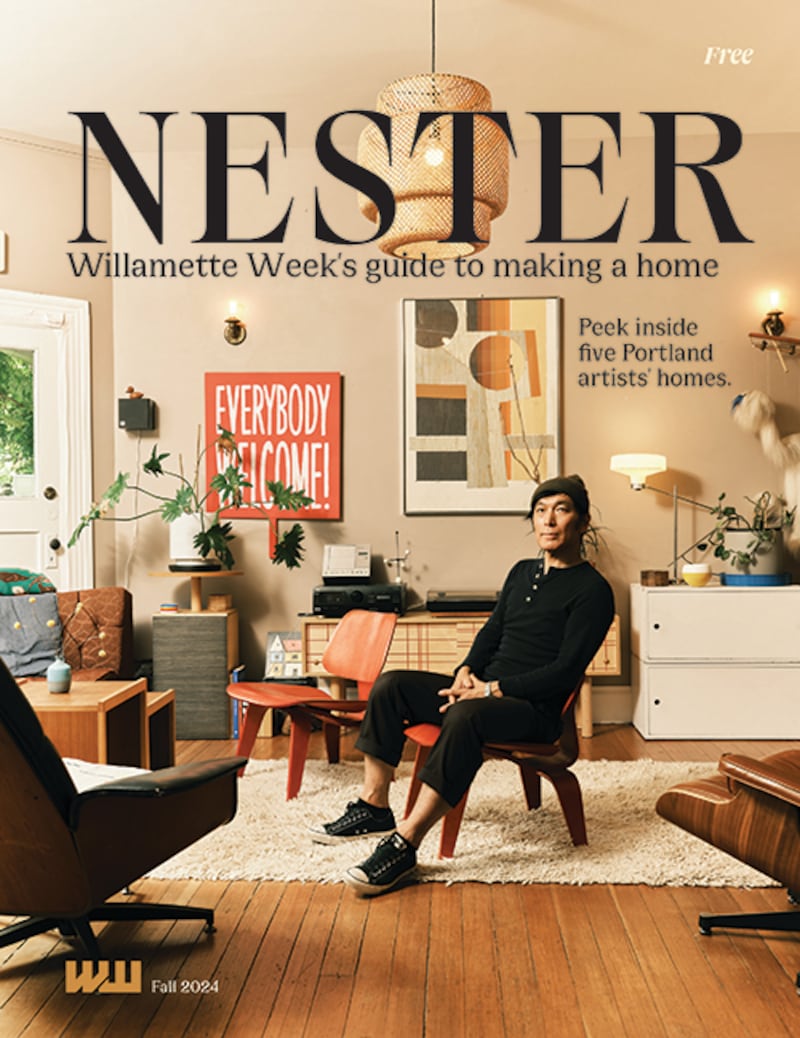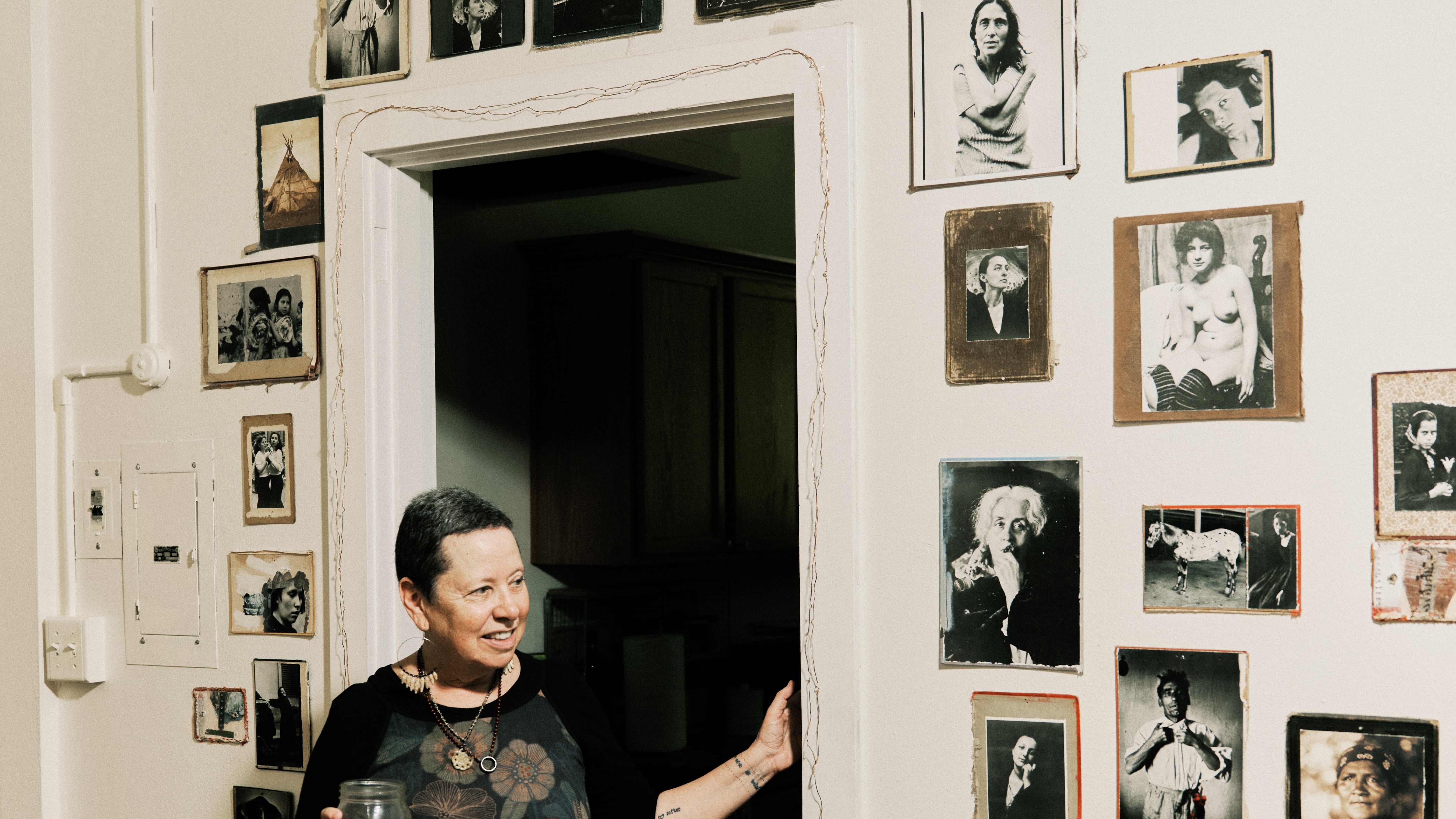In your ramblings around this city, there’s a chance you’ve found yourself in the Mount Tabor neighborhood and noticed the Pink Temple—the eye-catching, stout-and-square stucco building at the corner of Southeast 55th Avenue and Belmont Street.
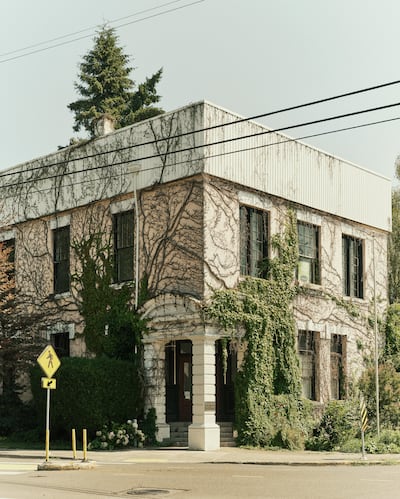
The 103-year-old structure covered in delicate ivy vines feels like a classic city building that’s seen multiple eras—and it has; it was once a telephone and telegraph hub, a Masonic lodge and, for the past three decades, a slowly renovated set of three apartments owned by Patty Merrill, founder of Cargo, the Southeast Portland global marketplace. Now, the building faces another change. It’s been for sale for nearly a year, with prospective buyers falling through. The Pink Temple—all 10,192 square feet of it—is in flux, but Orly Avineri, who’s been renting the ground floor unit for the past eight months, feels comfortable with uncertainty.
“I knew that it’s temporary, and I’m fine with the temporariness of things,” Avineri says.
That word, “temporary,” is a kind of ethos for the multimedia artist, who works primarily with found objects, both within her work and her home aesthetic. The décor of her high-ceilinged one bedroom apartment—rooms enclosed by half walls—feels well worn, highly tactile, with earthy textures. Bones, stacks of birds’ nests and woven baskets, an old apple barrel flipped and broken open to become a floor lamp leaking soft light—each piece feels like a keepsake steeped in history, the kind that comes with secondhand goods.
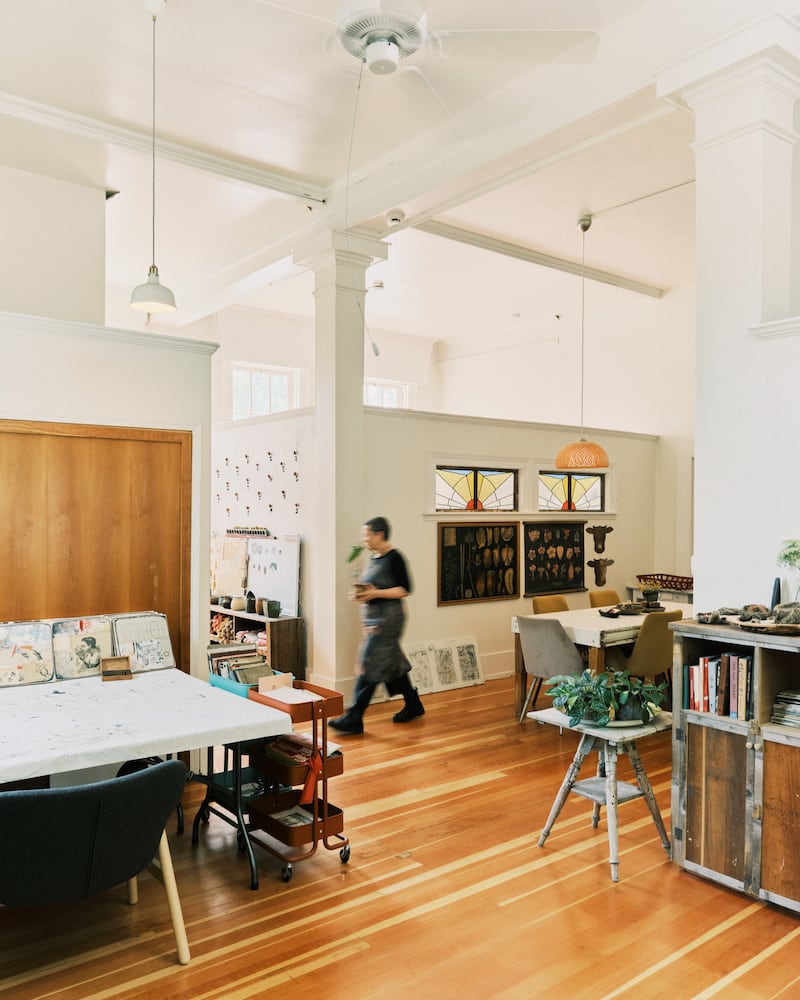
“If it’s not my computer or my TV or my bed, it’s pretty much not new,” Avineri says.
The tall window frames have been painted shut, leaving the air in the apartment warm with summer’s glow, but it suits the space that feels brimming with creative life. In the corner of the living room is Avineri’s studio, a wide folding table stacked with her materials, including old passports with pages worn down to a velvety softness, sewn with other collected pieces, such as the lining of an old casket and found photographs. The entryway of her kitchen is haloed with found black-and-white photo portraits taken from books, mounted on the backs of old hardback covers. Avineri finds herself drawn to reviving these lost objects, “things that have a story, that are somehow not my stories, but relate to my stories,” she says.
The artist spends most of her creative time helping others connect with found delights. Avineri, 65, teaches workshops around the world—Australia, Morocco, Mexico, the Sahara Desert, with two recent classes in Portugal and Whidbey Island.
The artist grew up along the Mediterranean Sea in the Middle East, then moved to the Netherlands for a decade, eventually making her way to the U.S. “Since I was very little, I just had all kinds of urges to go away from people and dig in the dirt and get some branches,” Avineri says. “This weirdness was always a need for me, so I would create a space to be in it and feel that it’s home, where I had full control over my life.”
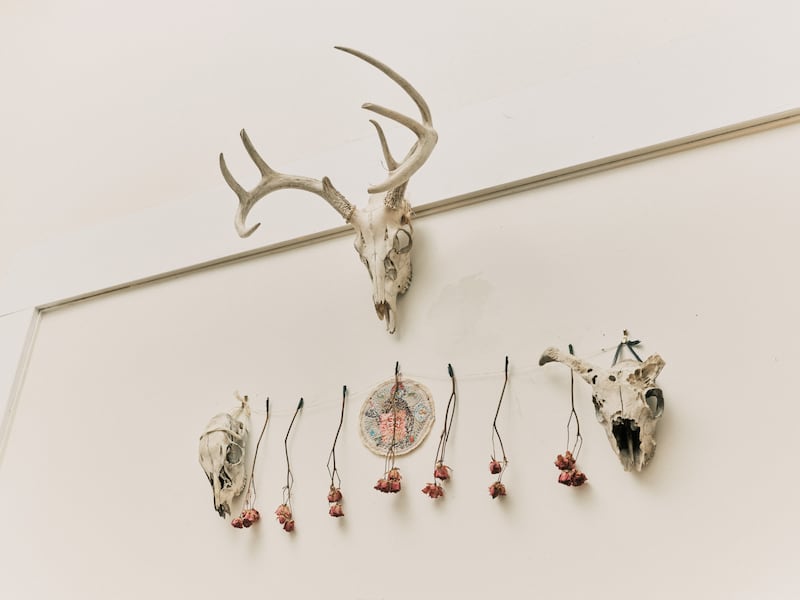
That definitive, slightly rebellious air fills her apartment—a frame turned around to reveal its thin backside hanging in the bedroom, miniature roses from a past lover stuck to the entryway wall with electrical tape, delicate like a wallpaper pattern. But nothing stays up too long.
“These creative urges that I have, they are creating the space—my creativity is so exuberant that I constantly change things,” she says. “I have a little ritual: I wake up in the morning, I really just don’t know what happened in the night, but I wake up in a little bit of a funk. The first thing I need to do is see things, feel things, put things together—they could be temporary for an hour or even a few minutes.”
This might mean pinning a new photo over another on the wall, or altering the artwork by the front door, the same piece Avineri’s been working on for 35 years, removing and adding, covering up old bits (“I get bored with it or it doesn’t excite me anymore,” she says).
In the midst of these changes, roughly once a week a potential buyer comes to tour the building, including her apartment. Avineri herself is getting ready to leave the building altogether and move back to her house in Salem to reimagine that space.
“That’s my practice, that’s why it’s OK for me to leave,” Avineri says. “I’m gonna get some of the stuff to the other place and start all over. It doesn’t matter if I rent or own or I’m in the middle of a desert—I will create that home for myself in order to feel at home.”
0 of 15
See more of Orly’s work at orlyavineri.com.
This story is part of Nester, Willamette Week’s annual home magazine. It is free and can be found all over Portland beginning Monday, Sept. 23, 2024. Find your free copy at one of the locations noted here, before they all get picked up! Or, order one through our store.
